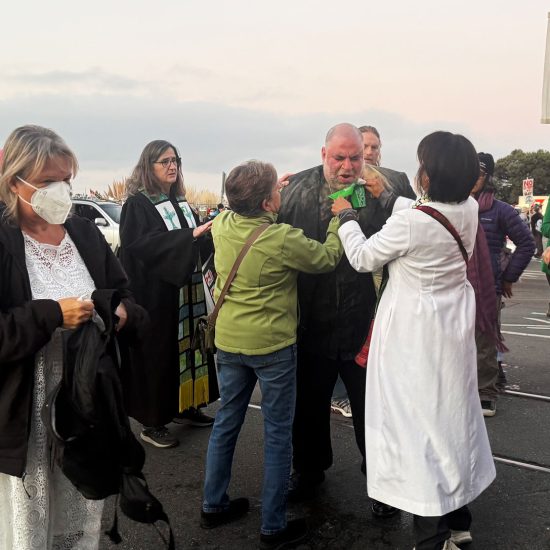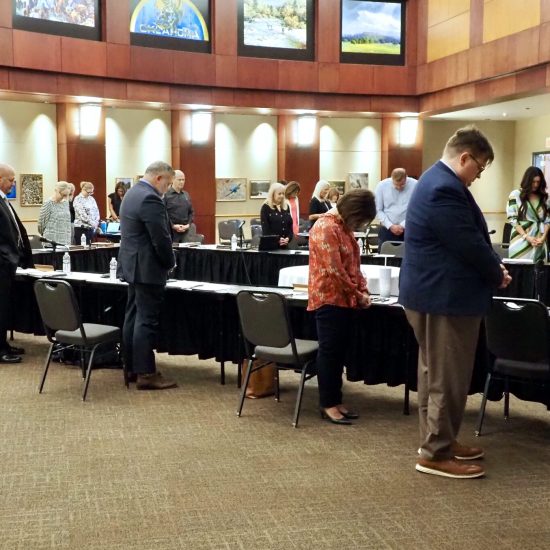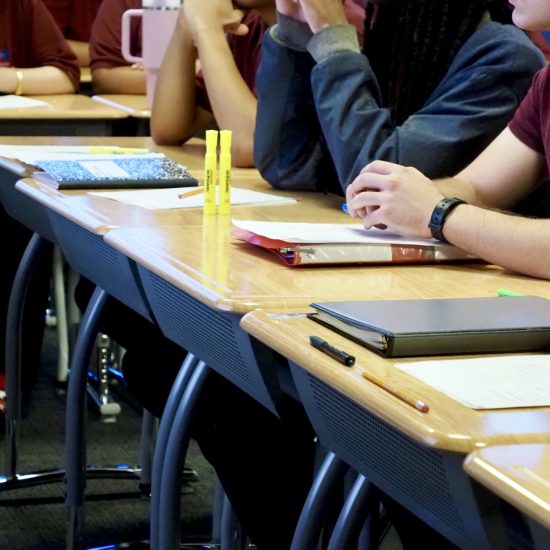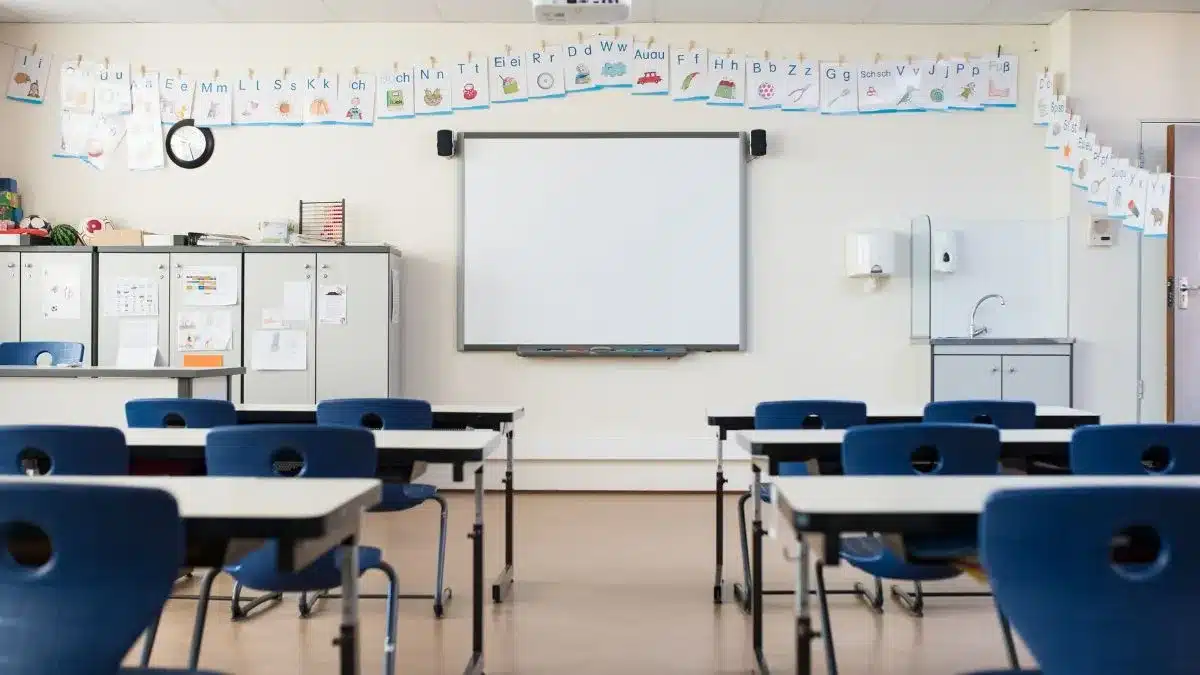
Missouri lawmakers crossed party lines to pass a bill that would clarify that the state’s public school districts and charter schools can teach elective social studies courses on Hebrew Scriptures and the Bible.
The bill, which Gov. Mike Parson must veto, sign or allow to become law by mid-July, passed the Senate unanimously and cleared the House by a vote of 108-30. It emphasizes that the courses should be unbiased, but it doesn’t mandate teacher training.
That’s an oversight some fear could lead to infringing upon students’ constitutional rights.
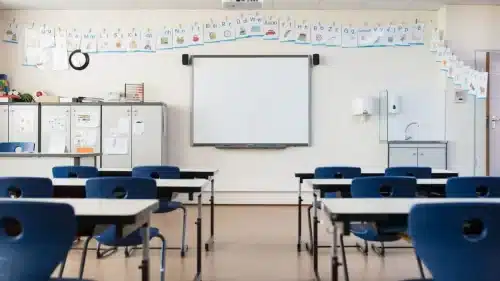
(Canva image)
Experts on religious freedom in education say the U.S. Supreme Court has been clear that public schools can only teach about religion in an objective, academic context. And at least a half dozen Missouri public schools already offer elective courses on the Bible as literature.
But it’s often up to individual teachers to design impartial courses, and they typically aren’t trained on how to do so.
That can lead to accidental bias when instructors aren’t informed about religious differences, such as variation in how the Bible is interpreted or which books it includes. During the past academic year, at least one Missouri district — Poplar Bluff — listed an evangelical Protestant study Bible as its main course text.
How do you determine whether an individual course is constitutional?
“The devil is going to be in the details,” said Steven Green, a law professor and affiliated professor of history and religious studies at Willamette University in Oregon.
“The question is going to be how do you do this, and what types of guardrails do you have to ensure that it does not become devotional, it does not make truth claims?”
Proponents tie Bible classes to a better understanding of society and culture
To prepare to teach a class at Fair Grove (Mo.) High School about the Bible, Michelle Wahlquist sought out books to help her understand and teach about the Bible as literature. She also set guidelines for herself such as not referring to the Bible as fiction or nonfiction and avoiding the New Testament, which she thought would make it more difficult to sidestep discussions of faith.
She said she feels comfortable teaching students about the Bible, but that wasn’t always true.
“I was really scared when I first started teaching. I was so meticulous in what I said.”
A longtime English teacher working in a district north of Springfield, Wahlquist began to relax more when she decided she could avoid bias by treating the Bible strictly as a work of literature, focusing on elements such as the author’s intent, setting, poetry and narrative. As a final activity, students dress up as Biblical characters and tell that person’s story.
Wahlquist wasn’t offered formal training or an established curriculum for her course, which she first taught in 2019. She was familiar with the Bible from her Southern Baptist upbringing and continued study as an adult, but not from an academic context.
She’s interested in opportunities to learn more but also happy with how the course has gone so far.
“It might be a little daunting, trying to take on something like this,” she said. “I think you have to maybe have some experience under your belt to feel comfortable maneuvering through this, but it’s been great.”
Proponents of offering Bible classes at public schools say doing so can help students better understand contemporary society and culture — a rationale that’s even in the text of the Missouri bill.
True religious literacy is an important skill for public school students, said David Callaway, a religious freedom specialist at the Freedom Forum, which describes itself as a nonpartisan foundation dedicated to First Amendment freedoms.
Understanding others’ perspectives and being able to engage with differences productively rather than fearfully can be an important personal and career skill, he said.
In a classroom setting, teachers may fear running afoul of the law, and students may worry about having their beliefs rejected, Callaway said.
When teachers “create a space that is safe and constitutionally friendly, I think real learning can flourish there,” Callaway said. “But it takes a lot of background to know how to do that well.”
Avoiding bias in public school Bible classes starts with teacher training and resources
More often than not, Mark Chancey has seen Bible courses taught inappropriately. Chancey is a professor of religious studies at Southern Methodist University who researches Bible courses in public schools. He has studied Texas public school Bible courses with the Texas Freedom Network, a grassroots and nonpartisan advocacy organization, and tracked relevant law changes around the U.S.
Insufficient teacher training is a big part of the problem. Without the proper training and resources, teachers approach Bible instruction in familiar ways often shaped by religious experience, Chancey said. “The bias creeps in, often unintentionally, and sometimes intentionally.”
While existing Missouri classes use a literature framework, the Bible classes bill encourages using a social studies framework. That can be especially dangerous because it may steer the course toward theological disagreements about whether the Bible is historically or scientifically accurate, Chancey said.
He suggested teachers focus on how Bible stories function within various religious communities if they’re teaching from a social studies perspective.
Pre-written Bible curricula aren’t a solution to teachers’ lack of training because they come with their own risks, Chancey said. He doesn’t enthusiastically recommend either of the two major options available for a pre-written curriculum.
Of those options, National Council on Bible Curriculum in Public Schools materials are particularly problematic, Chancey said. He found them full of inaccuracies and religious claims including an urban legend that NASA had found supporting evidence for a biblical story.
The Bible Literacy Project, another option for a pre-written Bible curriculum, has been held up as a more objective alternative, including a nod in a May 24 Kansas City Star editorial. But Chancey said although the curriculum is stronger, it still at times “lapses into traditional Christian ideas.”
Chancey suggested that for general advice on teaching the courses well, teachers should read a 1999 document titled The Bible and Public Schools: A First Amendment Guide and the more recent Bible Electives in Public Schools: A Guide from the Society of Biblical Literature.
Teachers can also seek out religious studies coursework from an academic perspective or consult with local professors, Callaway said. Online resources like the “Religion for Breakfast” YouTube channel may also be helpful as examples of how to cover religious topics “in an academic and constitutional way,” he said.
Which Bible should public schools teach?
There’s not only a lack of consensus about Bible curriculum for public schools. There isn’t broad agreement among religions or denominations about what books belong in the Bible or how they’re arranged.
Wahlquist teaches her students about different versions of the Bible, but she primarily uses the New International Version (NIV), a Protestant translation. A local church donated copies.
The edition she uses does not include commentary, which could guide students toward a specific interpretation, she said. Students can also bring their own Bibles.
The Missouri bill also requires teachers to allow students to choose which Bible they use.
That requirement doesn’t go far enough because the translation the teacher chooses will be the one they primarily reference, said Green, the Willamette University law professor.
Missouri school districts offering Bible literature courses in the 2022-23 school year
- Monett
- Poplar Bluff
- Ozark
- Fair Grove
- Willow Springs
- West Plains
Source: Missouri Department of Elementary and Secondary Education
Note: DESE also listed Cape Girardeau. A district spokesperson said the course had been discontinued.
Some texts could bring even more threats to religious freedom by explicitly steering students toward a specific religious viewpoint.
The 2022-23 course catalog for Poplar Bluff High School in southeast Missouri notes that the district’s two Bible as literature courses require “a unique book,” the NIV Study Bible by Zondervan.
That study Bible takes a traditional evangelical perspective and could raise legal problems because it includes notes with theological claims, Chancey said in an email. Assigning the book implies the “commentary is particularly valuable, reliable, or authoritative,” he said.
One example of that bias is a Christian interpretation that passages in the books of Isaiah and Jeremiah refer to Jesus — a view Jews don’t share, Chancey said. He’s seen similar interpretations as a recurring issue in Bible courses.
Poplar Bluff spokesman Tim Krakowiak declined to speak to The Beacon about the district’s Bible courses, citing a transition to a new superintendent.
For now, support from state lawmakers to teach Bible classes, and the possibility of the bill becoming law, doesn’t mean a flood of schools will start offering them. There could be a modest increase, Chancey said.
Either way, how the classes are taught is critical.
“Where they’re offered, they can be a very big deal. And when they are offered poorly, that can be a very painful experience.”
This article first appeared on The Beacon and is republished here under a Creative Commons license.![]()

